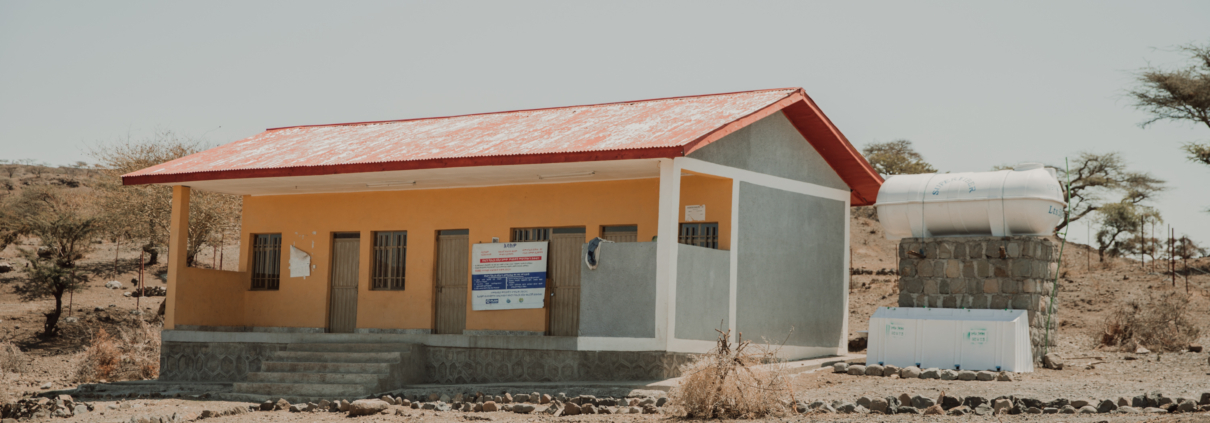A Story About Aydafer Health Post
In 2019 we built the Aydafer Health Post in Ethiopia.
It is part of an innovative, community-based program attempting to deliver primary care across the country and in doing so, reducing some of the highest rates of maternal & child deaths in the world.
For most people living in rural villages in Ethiopia, their first point of contact within the health system is usually with a Health Extension Worker (HEW). Although they are based in Health Posts, they spend much of their time in the villages, regularly visiting households and checking in with women.
In March 2021 Ethiopian photojournalist, Martha Tadesse visited Aydafer Health Post and met with the two Health Extension Workers, Fasika & Tsehaynesh who live and work on-site. This is their story.
~
Fasika Biset, 23, is a health extension worker at Aydafer Health Post. Sharing about her journey into becoming a Health Extension Worker, she states, “When I joined high school, I moved to Lalibela and rented a place to continue my higher education. I used to walk five hours every week to see my family and bring food. I did not pass the Grade 10 National Exam so, I joined a vocational training on Information Technology (IT). I wasn’t happy because I had always wanted to study medicine. After I studied IT for a few months, I heard about an opening at the health education department. So, I quit my IT study to join health education and become a Health Extension Worker.”
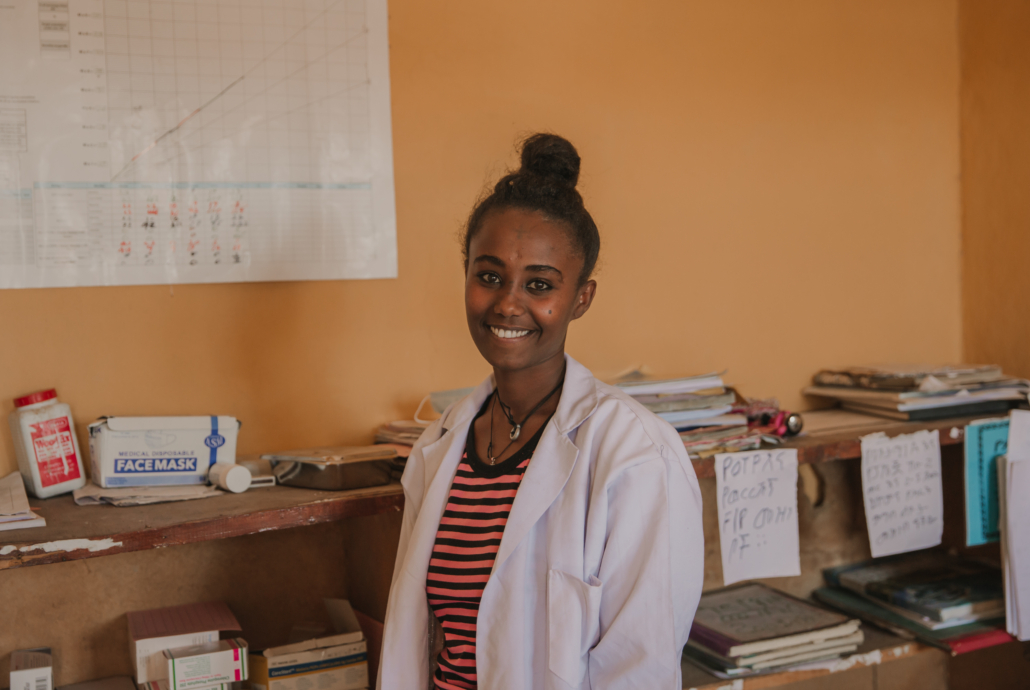
Fasika Biset, Health Extension Worker at Aydefer Health Post.© Martha Tadesse
Fasika has been working as a health extension worker for over three years. She provides family planning, antenatal care (ANC), birth and post-natal care (PNC) and runs campaigns for hygiene and sanitation in Aydafer kebele with a population of 7,599. Fasika and her colleague, Tsehaynesh Fikadu, are supported by women’s development groups who assist in identifying pregnant women in the community. Currently, Fasika and Tsehaynesh follow up on 17 mothers in the kebele. And they have also assisted four mothers who had precipitous labour. Fasika enjoys her work. She says, “I enjoy seeing a healthy child after counselling a mother for months. I love meeting her with her healthy child when she comes for her child’s vaccination. I love giving counselling to mothers.”
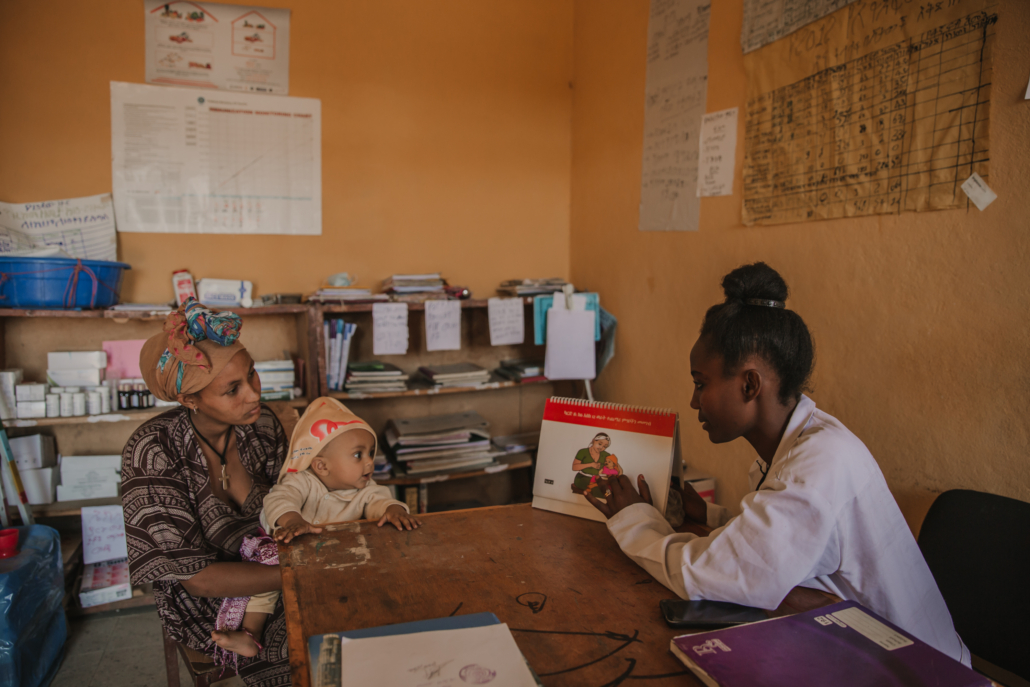
Fasika Biset, Health Extension Worker with Tsehay Geta during follow up at Aydefer Health Post.© Martha Tadesse
Fasika also shares that people’s perception on family planning has changed stating, “It used to be a taboo, and decision was made by the husband. But nowadays, both married and unmarried women come for the service, and the women decide what kind of plan they want.” About 5 to 7 women come to receive family planning services a day. During campaign days, there will be around 15 to 20 women.
Aside from the services they provide at the health post, Fasika and Tsehaynesh visit 8-12 households per day to assess their community’s hygiene and sanitation. Some of the households are too far from the health post and with no means of transportation, they walk 5-6 hours to reach them.
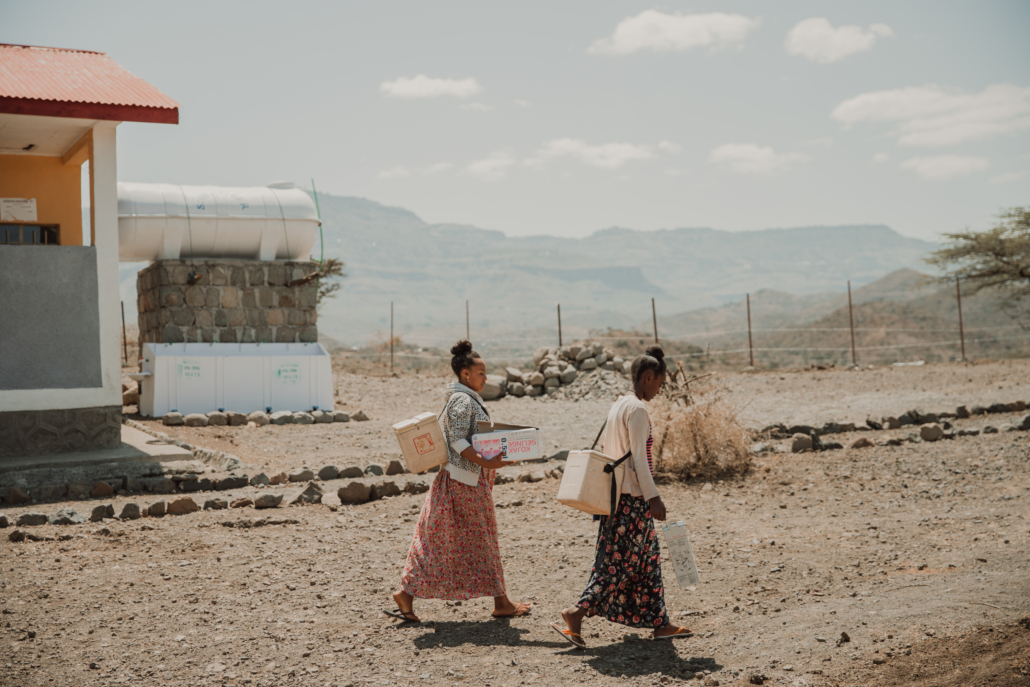
Fasika Biset and Tsehaynesh Fikade, Health Extension Workers on their way to Trachoma vaccination campaign. © Martha Tadesse
Covid-19 has affected work at Aydefer Health Post. Fasika states, “We used to gather mothers for group discussions and women’s development groups for our regular meetings but that has been impossible. So, we have had to go door to door to reach to our community. And because we had to shift our schedule to teach our community, we have a lot of workload.”
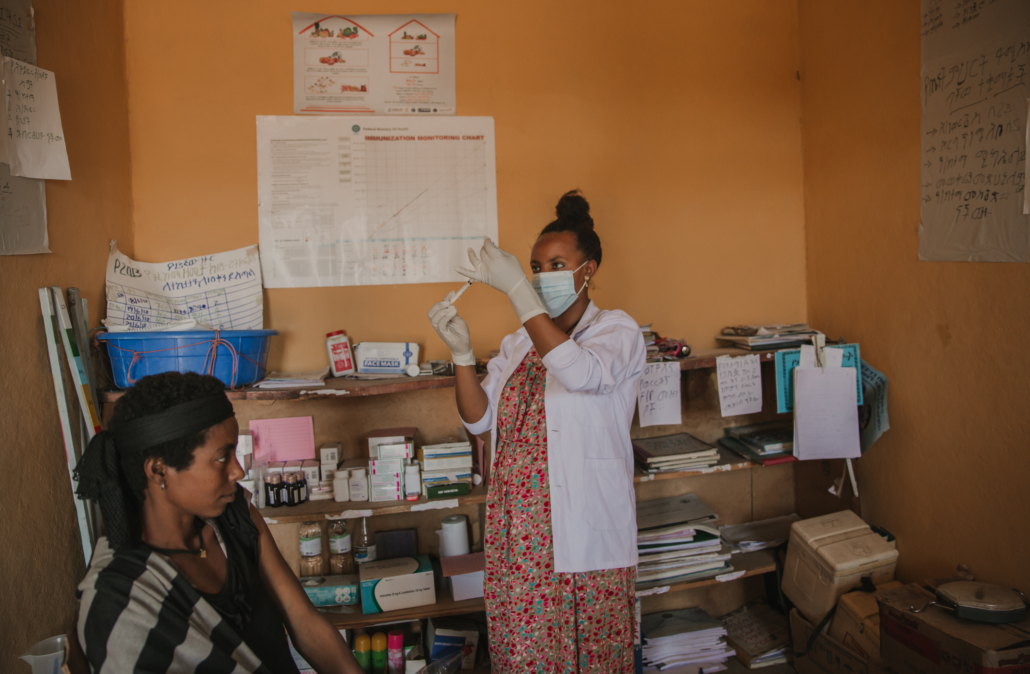
Tsehaynesh Fekade, Health Extension worker gives family planning service to Dasash Alemiye at Aydefer Health Post. © Martha Tadesse
The women mostly excluded from the health system in Ethiopia are those living in rural settings. This is due to a myriad of economic, social, cultural and geographical obstacles. But research shows that HEW’s are making a real difference. By spending time in outreach (doing home visits), the program becomes deep rooted in communities. It encourages women to be responsible for their own health and make sustainable changes around their own and their family’s healthcare. HEW’s across Ethiopia have directly contributed to significant national improvements in health outcomes, including substantial reductions in maternal, neonatal, infant, and child mortality.
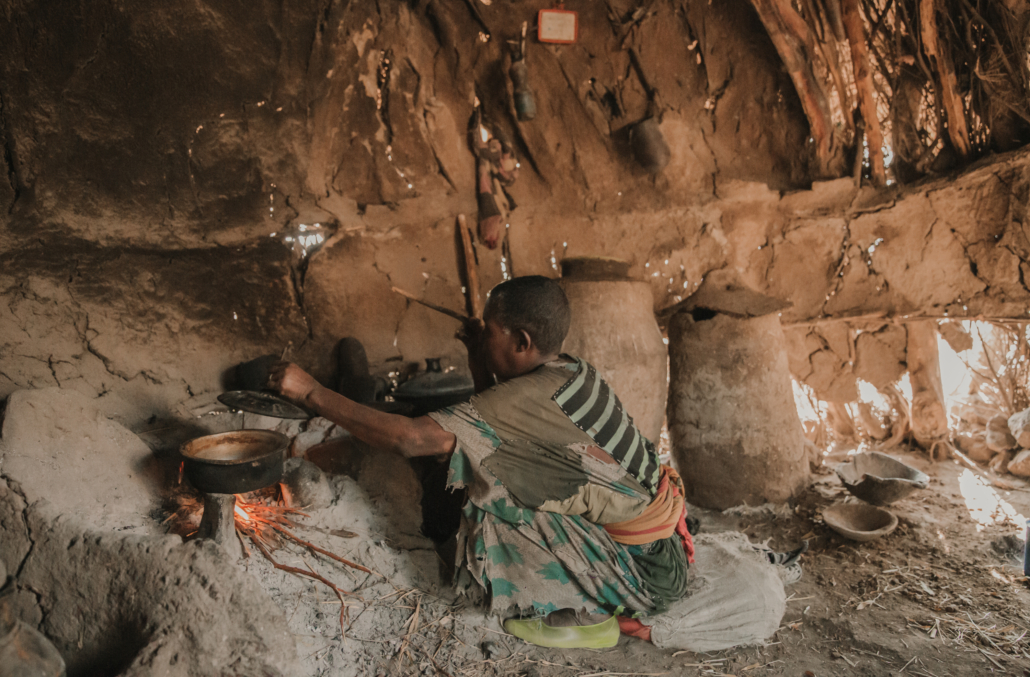
Muluye Fantahun making lunch inside her home. © Martha Tadesse
Electricity is the biggest challenge they face at the health post. Fasika states, “We don’t have electricity and we use our cell phone light when we have emergency cases. We get our vaccines from the health clinic which is 20 kilometers away.” Tsehaynesh adds, “Sometimes we run out of our cellphone battery, and we can’t provide services even when people come for emergency.” Fasika further states, “We really hope to have solar chargers so that we can serve our community effectively.”
Fasika and Tsehaynesh used to live far from the Health Post and Create Impact has built a new house next to the Health Post for them. Fasika says that it will make a lot of difference, “I am very happy about our dorm, any mother can come knock at any time of the day and we will be here to give service.”
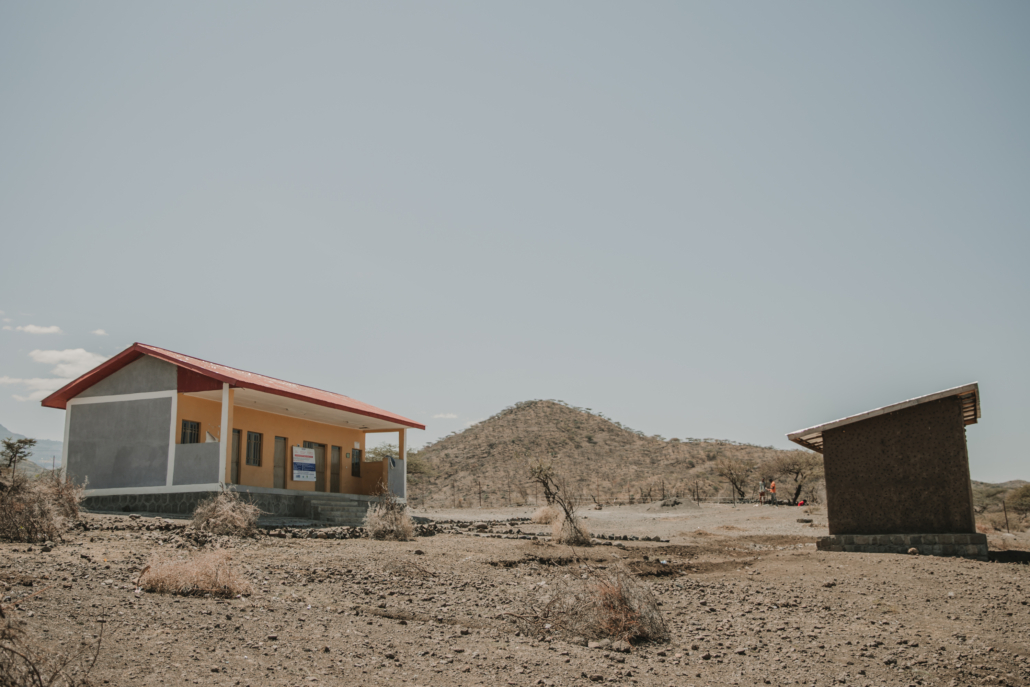
Aydefer Health Post.© Martha Tadesse
By Martha Tadesse
Permission was obtained to share these images & story.
Photos taken 16 Mar 2021 at Aydafer, Ethiopia

